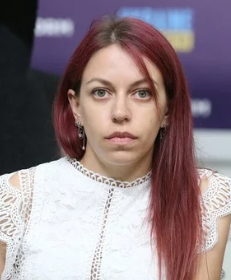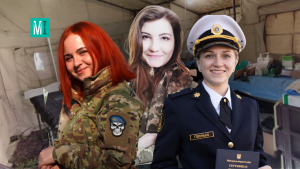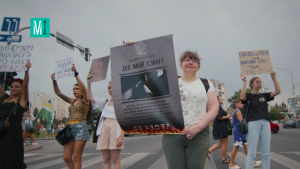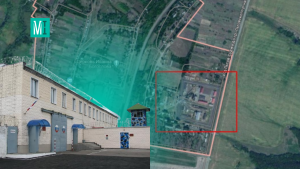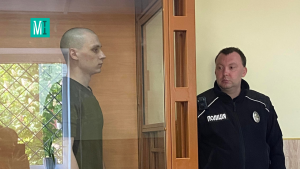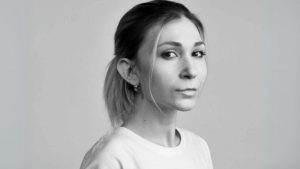Crime scene — Kursk: what happens to Ukrainians in the most notorious Russian POW facility
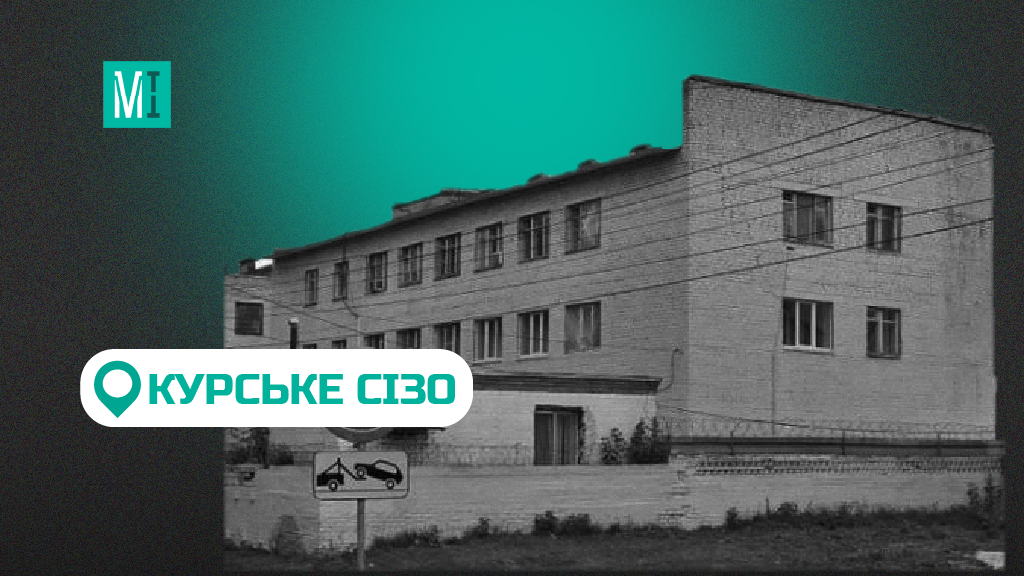
“The worst thing at every pretrial detention center is admission. I was brought to Kursk Pretrial Detention Center No. 1 at 11 a.m. and ended up at an intensive care unit by 3 p.m.,” says Yaroslav, a former prisoner of war. The man was captured in the spring of 2022 in Kharkiv Oblast around the time his left arm got severely wounded. For some time, he was kept at a Kursk hospital for surgery. But once transferred to Kursk PDC, he was back on the operating table a few hours later.
Since Russia started a full-scale invasion of Ukraine, PDC No. 1 in Kursk has been one of the major sites where Ukrainian prisoners, military and civilian, male and female alike, were brought for detention. His ex-inmates share different stories about their time at this pretrial detention center. Some only spent a day there, others were held for months.

Pretrial Detention Center No. 1, 1 Pyrohova Street, Kursk
“We were always kept on our toes”
Pretrial Detention Center No. 1 in Kursk is a complex of one old building and three new ones designed to house more than 900 people. According to official details, each PDC cell is designed for 4 people, but former detainees say some cells housed 12 to 22 people.

PDC No. 1, one of the oldest buildings that dates back to 1830
“Our cell was 2.5 meters wide and 6 meters long. There were 12 of us there, although it is designed for six people. They made extra beds so that everyone had a place to sleep on. The cell was very damp, the conditions were bad,” says Dmytro. The soldier ended up at Kursk PDC in March 2022.
Anna was held in the same PDC during her last month before release. The woman says that there were 11 of them in a six-bed cell, which lacked space, but the conditions were somewhat better than in her previous places of detention.

Prisoners were only taken out of their cells during checkups and interrogations
“We already had a normal toilet here, completely separated from our main space. The windows were free from bars, but covered with film on the yard side, so nothing could be seen. We could open the window ourselves whenever we wanted,” says the woman.
Despite this, prisoners were treated terribly. Women were forced to sing the national anthem of Russia at the top of their lungs, sometimes to the point of hoarseness. It was extremely difficult to get medical care. When ultimately called, the doctor would sometimes refuse to come.
“It was the PDC women employees who were especially angry. They could grab you by the hair and hit your head against the wall,” adds Anna.
Like in any other Russian PDC, the Kursk facility has an “admission and registration” procedure, as ex-inmates describe it. Each new arrival has to go through a beating before they are taken to a cell. The flogging of POW Yaroslav began as soon as he was brought to the PDC. First, he was beaten by a guard who spotted a special tattoo on Yaroslav’s body showing that he used to be a paratrooper. Then he was tortured during the interrogation to the point of unconsciousness. And when they could not bring the POW around, another guard hit Yaroslav’s post-surgery arm with all his might and broke it.

PDC No. 1 in Kursk, designed to hold 907 people
Another prisoner, Oleh, got to Kursk in the spring of 2022. During admission, he and other arrivals were beaten with batons, and some were hit with electroshock weapons. “We were always kept on our toes. The day after our admission, we were promised that if we behaved well, this would be the last time we were beaten,” the boy recalls. But no one kept the promise. The soldier says that when the Russian troops were defeated at the front, the guards went wild, taking out their anger on the prisoners.
Another serviceman, also named Oleh, was admitted to Kursk PDC in the autumn of 2022, after being held at several other POW detention sites within Russia. “While transported to Kursk, I sat and waited for this admission. But that was the first time it was completely painless for me — I was only hit twice with an electroshock weapon. Compared to what was at my previous detention site, it was so weak that I didn’t even feel it,” says the man.
Russian anthem for breakfast, poems for dinner
The day for Ukrainian prisoners at Kursk PDC begins at 6 a.m. They wake up to the Russian anthem, which everyone must sing. Prisoners are also handed printed texts of songs and poems glorifying Russia, which must be learned by heart within an hour. The radio plays throughout the day, turning into another form of torture.
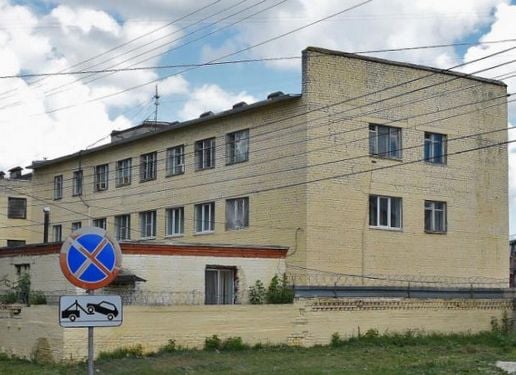
Russians keep both civilians and the military together in cells
Breakfast follows. Meals are delivered by local prisoners kept by PDC as servants. A person on duty is assigned in each cell to report on the situation in it when a guard comes in. He also keeps an eye on dishes that are issued. Interrogations follow. Not everyone is taken as last names are called selectively. Then they have lunch and dinner. Every evening, cells are checked up for prohibited items, a thorough checkup called “cell toss” in prison jargon is carried out once a week.
“Five guards enter the cell, we are pushed out into the corridor. They do checkups every morning and evening, but the ‘cell toss’ is a thorough process where you must take your mattresses and pillows into the corridor. This is when someone can be beaten,” says an ex-prisoner. Women were subjected to a similar procedure.
Throughout the day, prisoners are not allowed to sit on their beds. They can only sit on a bench or the floor. Sometimes pro-Russian books are brought so that one reads and others have to listen.
“The guards sometimes have fun by quickly reading a story about their ‘great state,’ which we have to remember and then retell,” says ex-prisoner Oleh. “I had to describe the meaning of their coat of arms, what the Russian flag looks like.”
Prisoners are rarely let out for a walk. But very few want it because the escorts beat and mock them during walks.
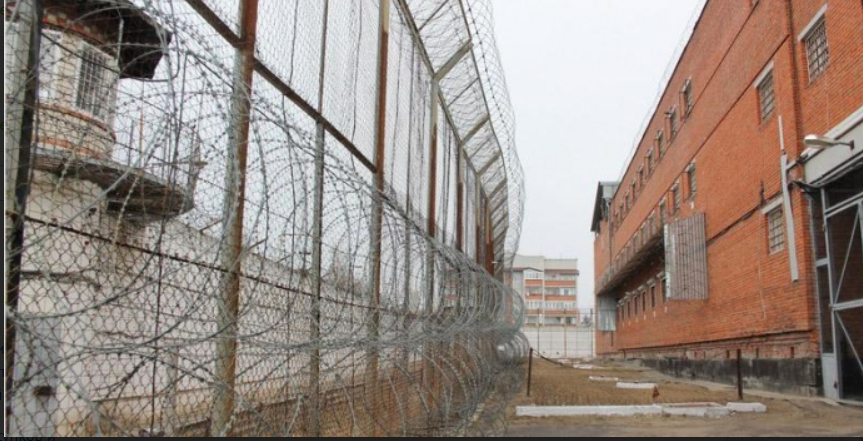
Captives would hardly ever go out into the yard
There are also hygiene problems at Kursk PDC. Anna says they were taken to shower only three times during her month at the facility. One had 5 minutes for everything, no personal hygiene products were distributed. Almost no one sees toilet paper or soap. At the same time, the prisoners do not dare to ask for anything because they are usually beaten for any request or question.
Bread saved me from death by starvation
Prisoners kept at Kursk PDC in late 2022 and interviewed by MIRH report that the lack of food is the most severe test in this facility.
“They ate all our food themselves. We heard the guards sitting near our cell smacking their lips — they would even eat oatmeal and later add some cold water to dilute the leftovers. That is, I could end up with 2 or 3 spoons of oatmeal in my plate mixed with water,” says an ex-prisoner. “Sometimes they would give us cabbage soup for the first course and the same cabbage for the second course. Four spoons, if you were lucky. For dinner we were given potatoes and fish, but it can be hardly described as potatoes, since it is pure water with a few occasional whole pieces, if you are lucky. Once fish ran out, they started giving us canned fish. It was like ordinary sardines in oil, but when half a can is split for eight people, you don’t get enough of it.” Ex-POWs say there were saved by bread — half a loaf was rationed per person.
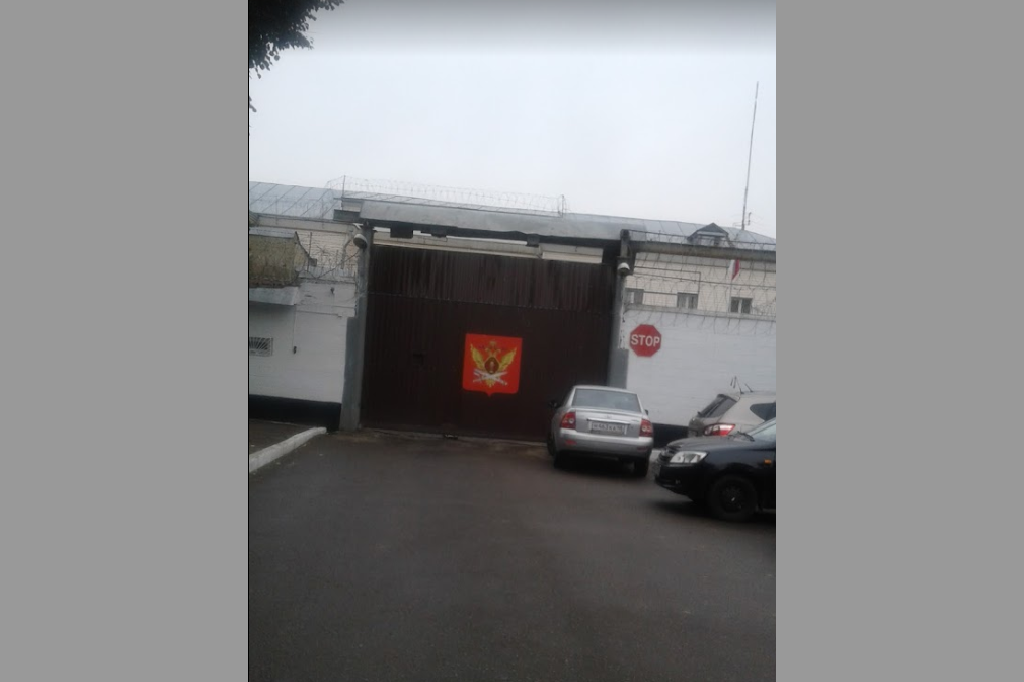
Behind these doors, prisoners were kept in overcrowded cells, beaten and barely fed
Military personnel captured in the first months of the full-scale invasion of Russia say that even the wounded were not given medical care immediately at Kursk PDC.
“When I was brought to the PDC, I had my first bandage applied as late as on the fifth day. After that, they would take off the bandage once every three days without rinsing anything. The would started to fester, so they would just smear some ointment and wrap the bandage back again,” says Ukrainian serviceman Maksym. He ended up at Kursk PDC in late April 2022. As time passed, those with serious medical conditions could be sent to a local hospital.
In general, former prisoners describe their detention at Kursk PDC No. 1 as “tolerable.” Torture and brutal beatings are less common here than at other detention sites. This is why many prisoners believe that a person transferred to Kursk might be on their way for exchange. However, facts supporting this assumption are questionable, since MIHR knows cases when, on admission to Kursk PDC No. 1, some would be exchanged a day or a month later, while others forwarded to other detention sites.
This material was created with the support of the International Renaissance Foundation within the Ukrainians in Captivity: Expert Support of the State and Families of Prisoners project. The material conveys the opinion of the authors and does not necessarily coincide with the that of the International Renaissance Foundation.


